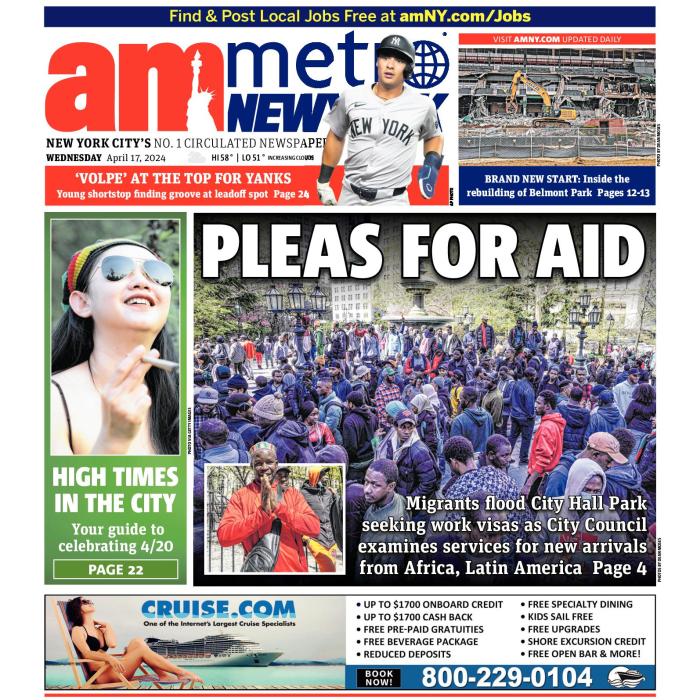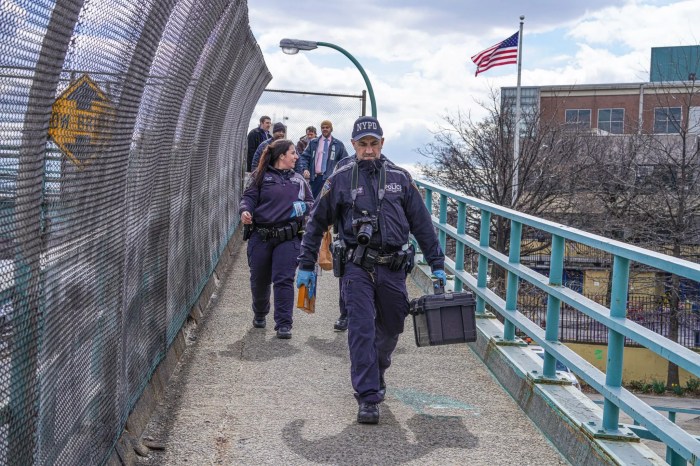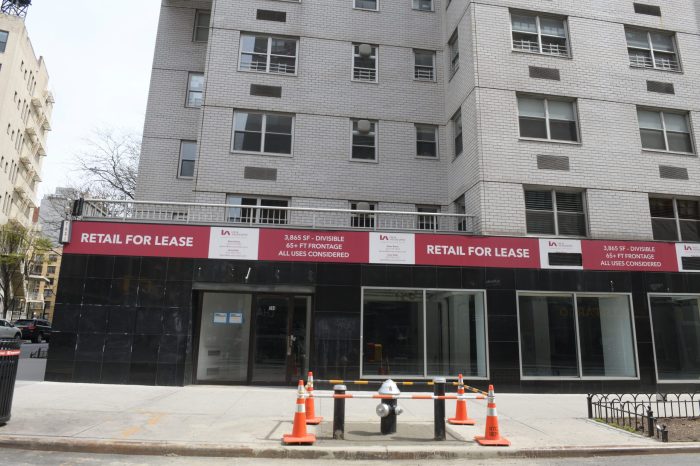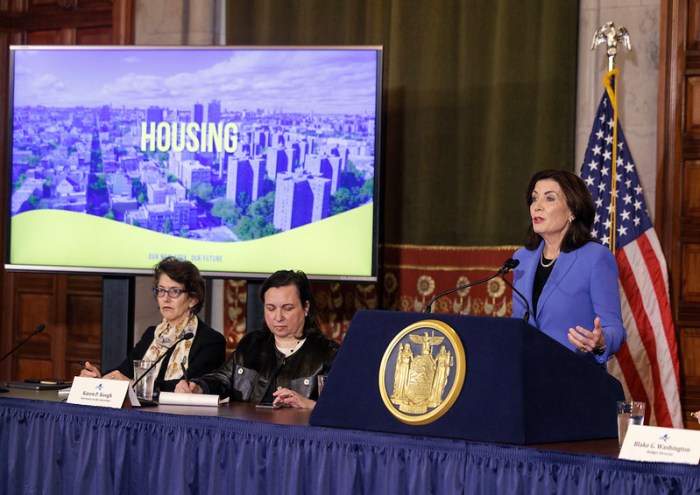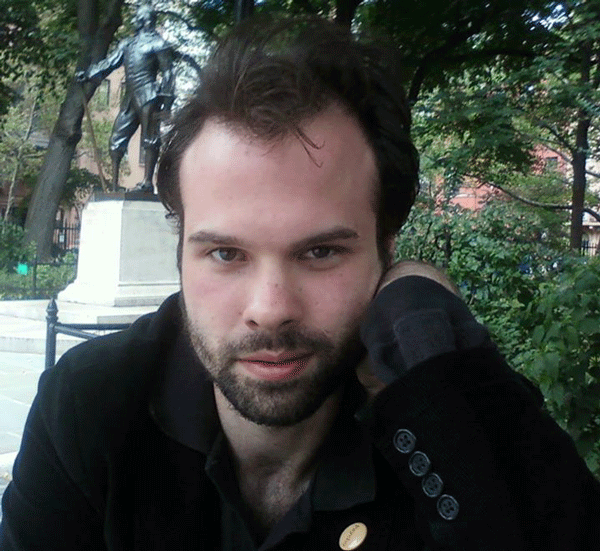
BY HEATHER DUBIN | With no Green Party candidate in sight for the City Council District 2 race, Miles Budde decided to step up to the plate. A few months ago, a friend of Budde’s told him the Green Party was looking for a candidate to run in the East Side district. Budde agreed to help with the search, and said if they could not find anyone, he would take it a little further and be the candidate — and the offer stuck.
During an interview this week at Ost Cafe in the East Village, the 23-year-old spoke about the Green Party, and what he would do if elected. Budde’s opponent in the November general election is City Councilmember Rosie Mendez, who has represented the district — which includes the East Village, part of the Lower East Side, Union Square, Gramercy, Kips Bay and Murray Hill — for two terms.
An undergraduate at The New School studying digital media part time, Budde (it’s pronounced “like pirate’s booty,” he said) is originally from New Haven, Conn. When he was a teenager, he also lived in Gramercy, and has been a resident there for the past six years. After high school, Budde worked at various jobs in the food industry for a few years, and has always been involved in activism.
The Green Party appeals to Budde for its positions on social justice, nonviolence and a clean environment.
“We don’t accept corporate donations,” he said, “and we are the only party in a unified stance on gay marriage or L.G.B.T. issues.”
Budde feels the party is gaining momentum, and, according to him, there are currently 150 Green Party politicians in office nationwide. Budde said these are mostly city councilmember-type positions, but he proudly included Mayor Gayle McLaughlin of Richmond, Calif., and Mayor Jason West of New Paltz, N.Y., on the list.
“We are gaining some prominence so far,” he said. “Lynn Serpe in Astoria, Queens, is running for City Council, and she stands a shot.” Budde attributes the rise of the Green Party to people’s frustration with “corporate parties,” who do not serve the American public’s everyday interest.
He referenced the Occupy Wall Street movement, and stated that many activists in it did not favor the Democratic Party. Budde advocates for third parties as a solution — and multiple parties as a necessity — for a true democracy.
“I think people are dissatisfied with President Barak Obama’s administration, and people want to restore the Fourth Amendment to the United States Constitution,” Budde said. That amendment protects the people’s right to be safe from unreasonable searches and seizures, and is a hot topic these days in light of recent revelations about sweeping surveillance by the federal National Security Agency.
As a city councilmember, Budde would create what he called a “fair tax.” He explained that Wall Street does not pay sales tax on credit default, student loans or bundled mortgages. Budde claimed if Wall Street paid the same rate as everyone else — 7 percent — it would create significant revenue for New York City. Budde claimed the taxing mechanism already exists, but is not enforced.
“After doing that, if we introduce a capital gains tax, we can create $5 trillion in revenue if we applied a pre-applying tax,” Budde stated. He would then hand over $30 billion of this money to New York City Housing Authority to create 1 million new apartments in “green” buildings, which save energy. He speculated this would produce a total of 10 or more residential apartment buildings throughout the five boroughs.
Budde would also use some of the $5 trillion to make public transportation free, and estimated that cost at $4 billion a year. In addition to transit, Budde wants the City University of New York to be free, and noted it was until 1976.
In terms of specific plans for the Second Council District, Budde said he would seek to “seize Gramercy Park and make it public.” Again, the newly applied Wall Street sales tax would help cover the cost for the city’s Parks Department to incorporate Gramercy Park into its system.
Budde also wants to improve the quality of public education. He would do this by limiting classroom size to 15 students, hiring more teachers and creating more teaching colleges.
When questioned about future hurricane preparedness for the district, Budde suggested constructing a barricade along the water’s edge. He would also like to create more wind energy.
“When the power plant was blown out, that wouldn’t happen with wind energy,” he said, referring to the Con Ed plant at 14th St. and Avenue C.
Other aspects of his campaign include making it a Class E felony to fire employees who try to unionize workers, and ending police brutality by changing the curriculum at the city’s Police Academy to focus on the “declaration of human rights” and ethics.
While out campaigning, Budde has met many people in the district, and asked them what issues matter to them. A woman with multiple sclerosis told him she has difficulty using subway stations without elevators. Budde is now seeking her help to create a bill that would ensure subway stations are handicap accessible.
Although not in office yet, Budde is already working on a few bills, such as the Cancer Elimination Act, which would sample and analyze carcinogens throughout the city in four-mile increments. He is collaborating on the bill with William Edstrom, who was the Green Party candidate for the Bronx’s 80th Assembly District last year and will run for Congress next year.
In pursuit of the City Council seat, Budde finds his age an asset when it comes to enlisting the support of fellow New School students, “but a lot of people don’t take me seriously,” he said.
“A few years ago I didn’t see myself running for office anytime soon,” Budde said. “I definitely plan on studying politics now.”
